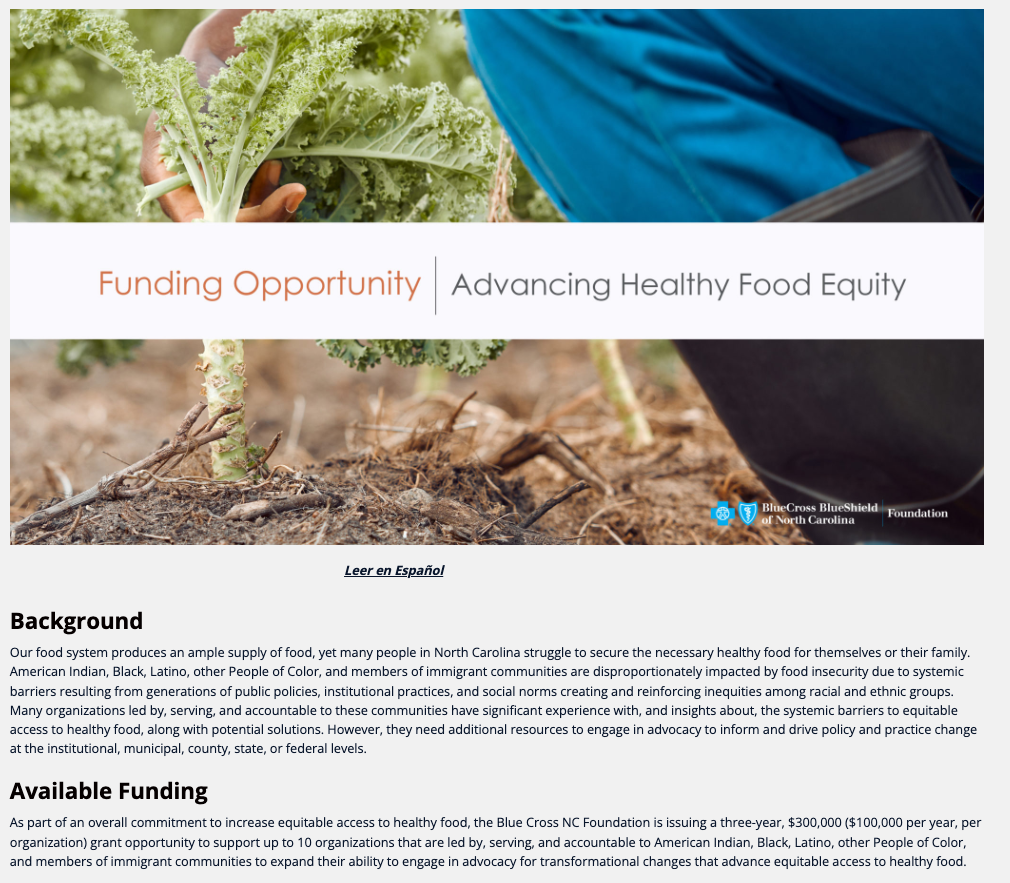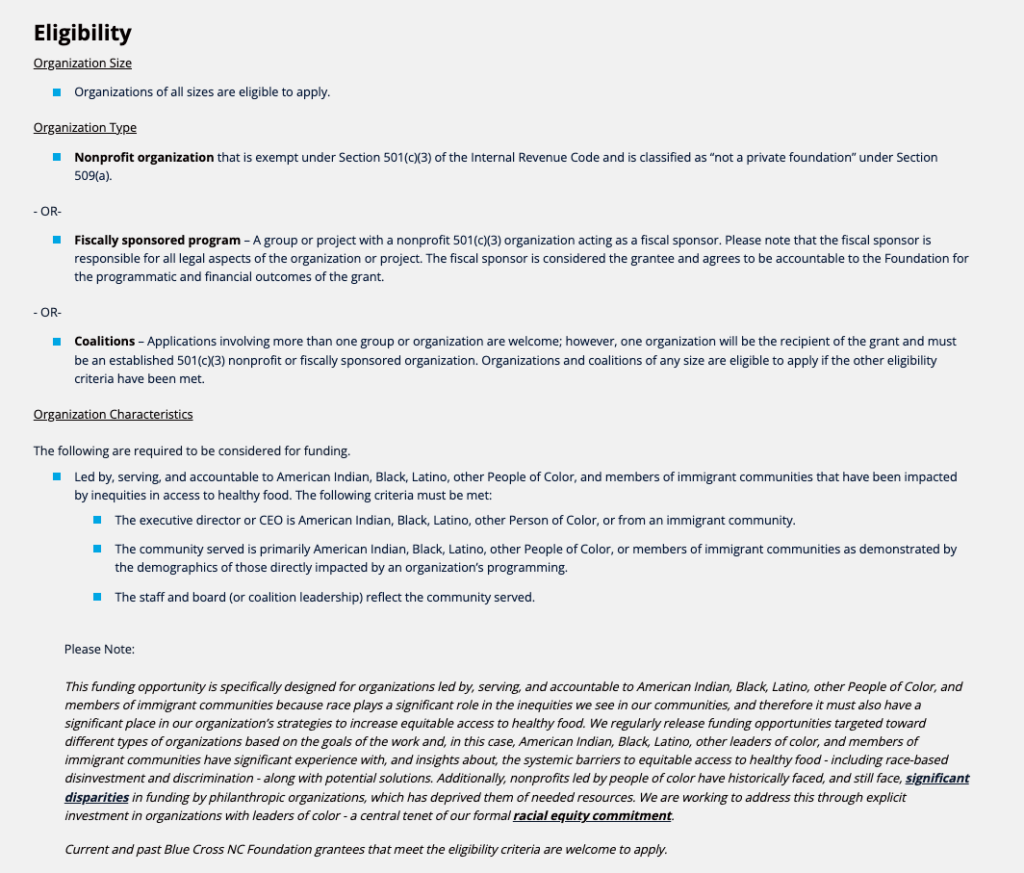How Woke Can You Go? Majority-Minority Groups Automatically Disqualified for ‘Food Equity’ Grant If CEO Is White
Tyler O'Neil /
Blue Cross Blue Shield of North Carolina Foundation is offering a three-year, $300,000 grant to advance “healthy food equity,” but many organizations that work to expand access to healthy food in minority populations need not apply.
Indeed, some organizations that employ a majority nonwhite staff and have a majority-nonwhite board of directors automatically are disqualified from the grant.
Yes, an organization dedicated to “food equity” that employs mostly black, Latino, and other racial minorities and has a majority-minority leadership can’t get the grant if its CEO is considered white.
This isn’t some claim critics are making about the grant, either—it comes directly from the horse’s mouth, from Blue Cross Blue Shield of North Carolina itself.
“We have received questions about eligibility from organizations that have a majority people of color staff, and staff leadership, and white CEO,” a foundation representative said in a “Healthy Food Equity” webinar Feb. 2. “So given the spirit of this opportunity Sheila and I shared earlier, these organizations are not eligible for this particular opportunity.”
The “Advancing Healthy Food Equity” grant, which will award $100,000 per year, per organization to up to 10 organizations, limits eligibility to groups “that are led by, serving, and accountable to American Indian, Black, Latino, other People of Color, and members of immigrant communities.”
Under “organization characteristics,” the foundation’s webpage lists three racial criteria: the executive director or CEO must be a member of a racial minority or “from an immigrant community;” the community the organization serves is primarily racial minority or immigrant; and the staff and board “reflect the community served.”

“Our food system produces an ample supply of food, yet many people in North Carolina struggle to secure the necessary healthy food for themselves or their family,” the foundation’s webpage states. “American Indian, Black, Latino, other People of Color, and members of immigrant communities are disproportionately impacted by food insecurity due to systemic barriers resulting from generations of public policies, institutional practices, and social norms creating and reinforcing inequities among racial and ethnic groups.”
The grant aims to expand organizations’ “ability to engage in advocacy for transformational changes that advance equitable access to healthy food.” The webpage suggests that stringent eligibility requirements are necessary because “nonprofits led by people of color have historically faced, and still face, significant disparities in funding by philanthropic organizations, which has deprived them of needed resources.”
The Blue Cross Blue Shield of North Carolina Foundation frames the grant as fulfilling “a central tenet of our formal racial equity commitment.”

Dr. Stanley Goldfarb, board chair at Do No Harm, criticized the grant in a statement Friday to The Daily Signal. Do No Harm is an organization of doctors, nurses, and health care professionals that speaks out against medical abuses, particularly in the realm of experimental gender hormones and surgeries.
“If ever there was a bad idea, the notion that we should start to separate our country along racial lines is amongst the worst,” Goldfarb, a kidney specialist, said. “The plan by the North Carolina Blue Cross Blue Shield company takes divisiveness to a new level. Even having a leader of an organization who is white is enough to prevent the entity, which apparently serves minority communities, from participating in a grant program.”
“Do Americans really want this sort of apartheid?” he asked.
Blue Cross Blue Shield of North Carolina Foundation did not respond to multiple requests for comment on the grant’s eligibility or the criticism about it.
North Carolina Attorney General Josh Stein, a Democrat, declined to comment on the grant’s legality.
Have an opinion about this article? To sound off, please email [email protected] and we’ll consider publishing your edited remarks in our regular “We Hear You” feature. Remember to include the url or headline of the article plus your name and town and/or state.
